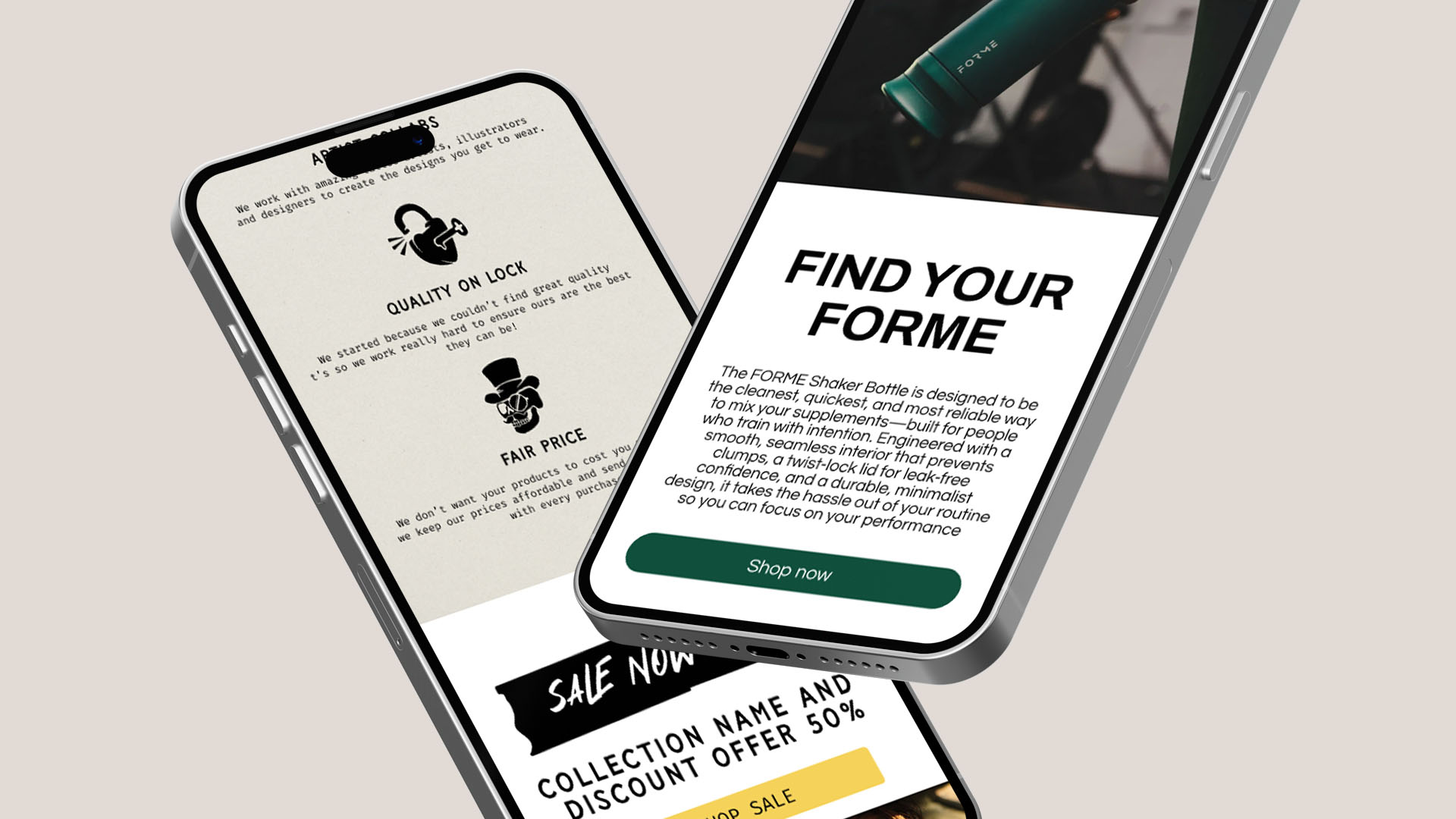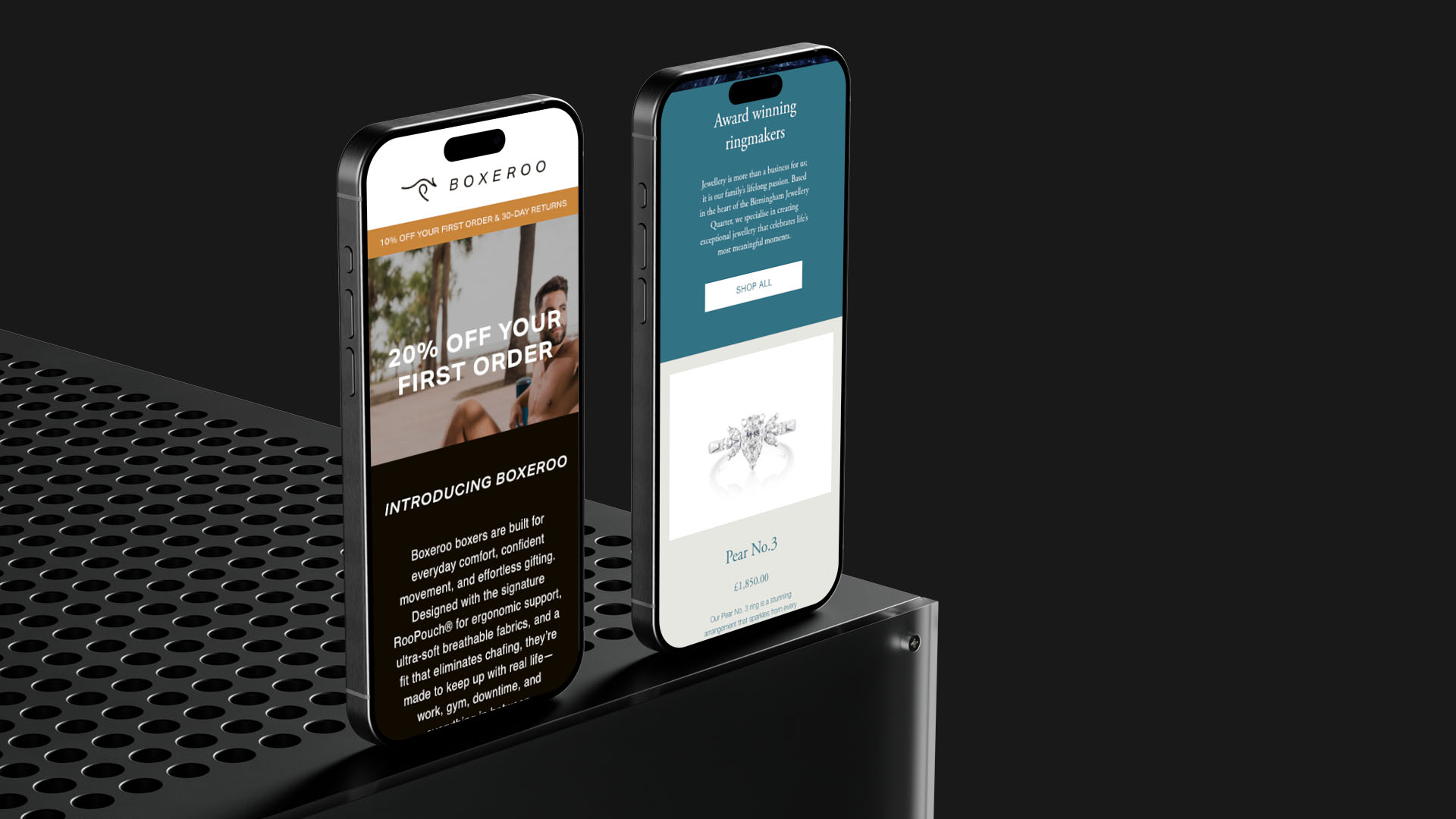


Email customers live with your brand for the lifetime of your business. Social media and SEO depend on algorithms and the success of ads, but if you do email marketing well, it should be a double-digit percentile increase inside the revenue your business creates.
Being able to give people those consistent touchpoints of new products, new campaigns, and the status of your brand gives you a commanding advantage if done correctly. Working with Cake gives you that ability.






We’re here to chat. Whether you’re looking to launch a new website, optimise your current website, or explore what’s possible with Shopify, we’d love to hear from you.
LET'S CONNECT



